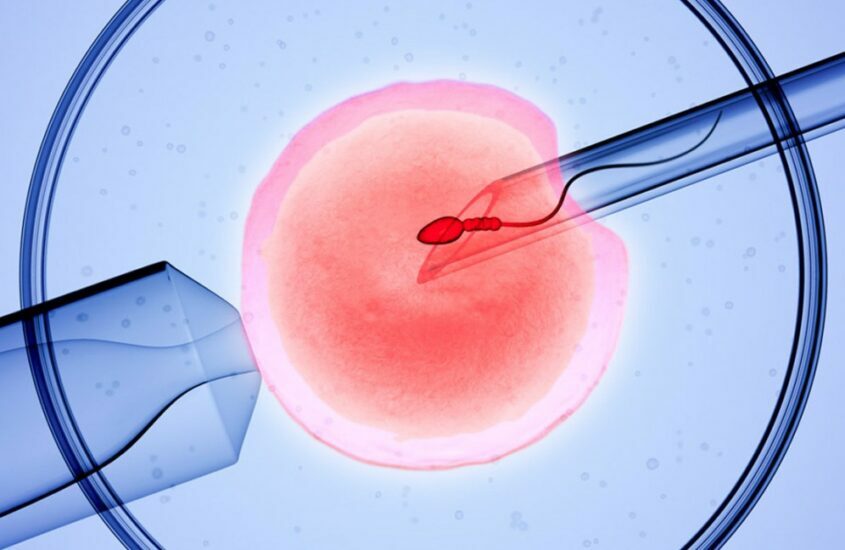Infertility in Men: Common Myths and Misconceptions

Male infertility is a condition surrounded by a host of myths and misconceptions that can lead to confusion and misinformation. Understanding the facts is essential for those seeking to improve their fertility, as well as for supporting partners.
Myth #1: Infertility is Always a Woman’s Problem
A prevailing myth is that infertility is primarily a female issue. However, infertility is nearly equally distributed between men and women. Approximately 40% of infertility cases are due to male factors, which emphasizes the need for men to seek proper evaluation when faced with conception challenges.
Myth #2: Lifestyle Choices Don’t Affect Sperm Health
Lifestyle choices play a significant role in male fertility, affecting everything from sperm count to motility and quality. Habits such as smoking, excessive alcohol intake, and a sedentary lifestyle can impair sperm health. Likewise, environmental factors like exposure to certain chemicals can lead to poor sperm production and function. A comprehensive semen analysis report can help reveal the effects of these lifestyle factors, providing an essential assessment of sperm health and helping to guide lifestyle improvements.
Myth #3: Age Only Affects Female Fertility
While female fertility is more widely impacted by age, male fertility can also decrease over time. Men may continue producing sperm throughout their lives, but the quality can decline, leading to lower motility and higher risks of genetic abnormalities. Men over the age of 40, for example, may experience a decline in fertility, which highlights the importance of seeking timely medical advice.
Myth #4: Supplements Alone Can Cure Male Infertility
Another common misconception is that supplements can “cure” infertility. While certain vitamins and minerals—like zinc, selenium, and folic acid—can help improve sperm quality, they cannot cure all cases of infertility. Supplements may support overall reproductive health but are often not enough on their own. For more severe cases, such as azoospermia (the complete lack of sperm in semen), more advanced interventions may be necessary. In such cases, consulting with a professional about azoospermia treatment options can provide the most effective path forward.
Myth #5: A Normal Sperm Count Means Perfect Fertility
A normal sperm count is only one factor in determining fertility. Sperm motility (the ability to move) and morphology (shape) are equally important. A fertility clinic can perform a detailed semen analysis that assesses each of these factors, providing a clear picture of male reproductive health. Some men may have a normal count but poor motility, which can still impact their ability to achieve conception naturally.
Myth #6: Infertility Cannot Be Treated in Men
Many believe that male infertility is untreatable, but there are numerous treatment options available today. Depending on the underlying cause, treatments range from medications and lifestyle changes to more specialized interventions. Hormonal treatments, surgery for conditions like varicoceles, and even lifestyle modifications can improve chances of conception in many cases. For more complex situations, consulting with an infertility specialist can provide tailored solutions, including advanced reproductive techniques.
Myth #7: All Fertility Clinics Offer the Same Services
Not all fertility clinics are equipped with the same technologies and expertise. A reputable fertility hospital in Lahore, for example, may have specific equipment, diagnostic tools, and skilled professionals who are well-versed in treating male infertility. Clinics may also vary in the procedures they offer, including specific treatments such as in vitro fertilization (IVF) or specialized azoospermia treatments. It’s important to research and choose a clinic that offers a comprehensive approach to male infertility.
Myth #9: Sperm Quality Can’t Improve After Diagnosis
Sperm quality is not always a fixed condition, and it can improve with targeted efforts. Making positive lifestyle changes, managing stress, and avoiding toxins can positively impact sperm health. Additionally, consulting with an infertility specialist can provide guidance on medical interventions and supplements that may support sperm improvement.
Conclusion
Male infertility is influenced by numerous factors, from lifestyle choices to underlying medical conditions. Dispelling myths about male fertility is essential for men to take an informed approach to their reproductive health.
For those facing more complex fertility issues, choosing the right fertility hospital in Lahore with access to specialized treatments, such as azoospermia treatment, can make all the difference in starting or expanding a family.





